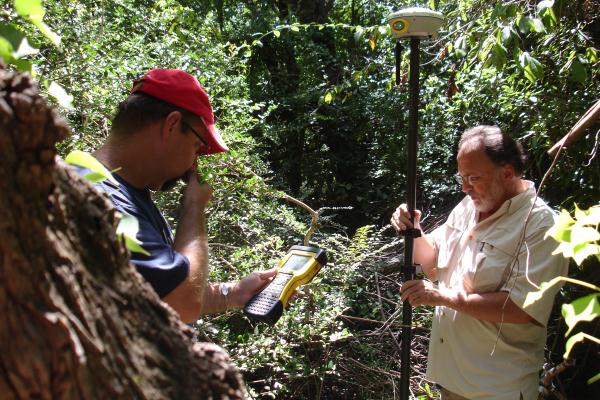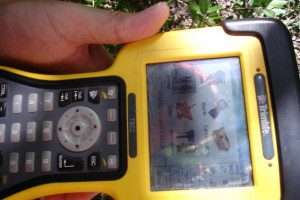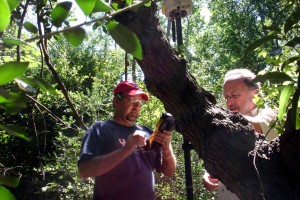Lessons from a $40,000 G.P.S. Device

Geocacher Jib Ahmad, Sunshot99, makes his living as a land surveyor. His GPS device is literally his livelihood. A land surveying website lists the occupation as the world’s second oldest job. But it now has some of the world’s most modern, technical and costly equipment.

Jib says that the GPS device displayed above costs about $40,000.
Let’s add a little perspective to the price tag.
With the slumping housing market, $40,000 will not just buy you one house, but in some parts of the world it’ll buy you two houses (or more).
Jib was kind enough to answer a few questions about the five-figure device. He says the Global Positioning System is one of his favorite subjects.
Jib says, “I am a land surveyor here in Texas and this is not my personal unit. I use it for work. I have never looked for a geocache with the unit – only verified coordinates with it.”
He says that the device’s accuracy is certified at two to three centimeters on a horizontal surface.
Two centimeters is about the width of a nickel. Jib says he’s found the unit is generally even more accurate.

He says, “This is a ‘survey grade’ system that would not be necessary or practical for most geocachers.”
But in case you’re interested, he has details. A lot of details. Jib says the device is made up of a base unit and a rover unit: “The receiver I was using is a Trimble R8 GNSS with a Ranger TSC2 Bluetooth data collector. The receiver has an integrated antenna that is capable of tracking 44 satellites.”
At this point you may say, ‘Well there aren’t 44 U.S. GPS satellites out there.’ You’d be right. This GPS device can also track signals from Russian and European Union global positioning satellites.

He says, $40,000 doesn’t buy you any more of a geocaching joy. “To search for a geocache that was placed by a handheld GPS would not be much fun with a ‘survey grade’ GPS device. The coordinates would have the standard handheld error of about 3 meters or 10 feet. So really it would not give the ‘survey grade’ geocachers an advantage over other handheld cachers. But for those that would place a cache with ‘survey grade’ equipment, the normal geocachers should have better luck depending on the accuracy of their own handheld unit.”
And Jib has advice for you to get the most out of your GPS device: “Geocachers may find that they can get a better signal and accuracy range by simply moving their body around. In North America, the best direction for the GPS system is to have a clear southern horizon. So, if you are having trouble, move around so that the southern sky is more visible.”

He says his best advice is to know your own GPS device inside and out. If you want to test its accuracy, you may have some luck in the Houston, Texas area soon.
Jib says, “I am in the process of getting permission from the U.S. Army Corp. of Engineers to set a benchmark/geocache in a Houston area park. The geocache will be a Mystery cache designed to show any cacher how to get different coordinates for the same point. Hopefully this will show them the standard error for their PND (personal navigation device).”
